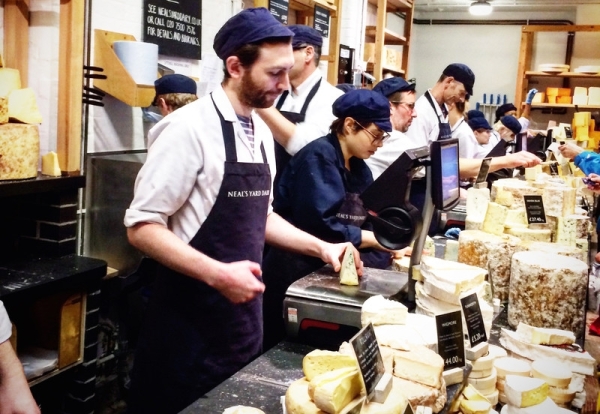Brits brace for the price of frictionless foods trade with EU
The decision by the UK government to slap importers of meat and dairy products from the EU with a £29 (€35) charge for each delivery of a specific item — such as an individual pack of cheese or sausage — with costs capped at £145 (€170) per shipment, has achieved a rare display of unity: complaints from food companies and consumers.
Cold Chain Federation Chief Executive Phil Pluck has warned that many EU food businesses, particularly small artisan producers will simply stop exporting to the UK.
"Those that do continue may see up to £1,000 added to the cost of one multi-consignment lorry entering the UK and will likely need to pass on a significant portion of those costs with higher prices," he said.
After the price hikes on food staples resulting from Russia’s war in Ukraine, pricier European cheese and meat will be another kick in the wallet for Britons.
Similar messages have come from other industry leaders.
"81% of businesses that responded to the government’s own consultation on its proposed charging structure at the border made it clear that these charges will have a fairly or extremely negative impact on their business," says Nichola Mallon, Head of Trade at business group Logistics UK.
"With only 27 days to go until these new checks and charges are to be applied, the cumulative cost facing businesses, and details of the compliance regime that will underpin it, are still not clear," she added.
The sense of public bemusement at the new charges is, in part, because the UK left the EU’s single market in January 2021. The EU introduced full customs controls on imports from the UK on 1 January 2021.
The UK, by contrast, has moved much more slowly. The government has delayed the introduction of sanitary checks on meat, dairy and the majority of plants from the EU a total of five times since Brexit, partly because of concerns that businesses were not prepared for the changes and partly because the UK’s border infrastructure was not ready to carry out inspections of goods arriving from the EU.
The most recent delay was announced last August, when UK ministers stated that health certificates required for imports arriving at the Port of Dover and via the Eurotunnel would come into effect from 31 January. Sanitary and phytosanitary (SPS) checks on medium-risk food, animal and plant products come into force on 30 April, when the new charge will enter into force.
The UK’s new safety and security declarations for EU imports will come into force in October.
Each time, food industry representatives welcomed the delay but warned that prolonged uncertainty about import rules was bad for business.
The most obvious reason why food companies dislike the new ‘common user charge’ is that they will have to pay it, though the costs are likely to be passed on to consumers in price rises.
The government estimates that the additional costs of the border checks and new certification requirements could add another £330m a year to business costs.
However, ministers argue that the charge has been kept as low as possible and will help "recover the costs of operating our world-class border facilities where essential biosecurity checks will protect our food supply, farmers and environment against costly disease outbreaks entering the UK through the short straits".
The Horticultural Trades Association has retorted that the new regime looks like it was "constructed on the back of an envelope".
The new charges are, nonetheless, a political choice.
After the UK government watered down its proposed Brexit Freedoms Bill, under which all EU legislation was due to be amended, repealed, or replaced by December 2023, only a handful of EU laws on food safety were scrapped. The government did not need to introduce a new regime of checks and customs charges, but argues that having the right to differ from EU rules is one of the triumphs of Brexit.
The opposition Labour party, which is likely to find itself in office within the next few months, says that it would seek to negotiate a veterinary agreement with the EU to reduce the need for checks, although it is hard to imagine that this could happen quickly unless the UK committed to sticking with EU food safety rules.
The UK’s Department of Food and Rural Affairs estimates that nearly half of the food eaten in the UK is imported, more than two-thirds of which comes from EU countries, making the charges a strange choice.
The row over the import fees is only part of the picture. Last month, Dover Port Health Authority accused the government of jeopardising food safety with its proposal to move checks on goods to an inspection centre more than 20 miles away from the port.
The trade group, which represents businesses who operate frozen and chilled storage facilities and/or temperature-controlled distribution vehicles, has also expressed concern about the lack of assurances that different food consignments will be successfully kept at each’s correct temperatures for safety and quality when they are held at Border Control Posts.
Others have warned that the new paperwork requirements, which include health certificates, import licenses and declarations, and health entry documents will lead to lengthy delays.
Either way, successive UK governments chose to end frictionless trade with the EU. Importers and consumers are about to pay the price.

